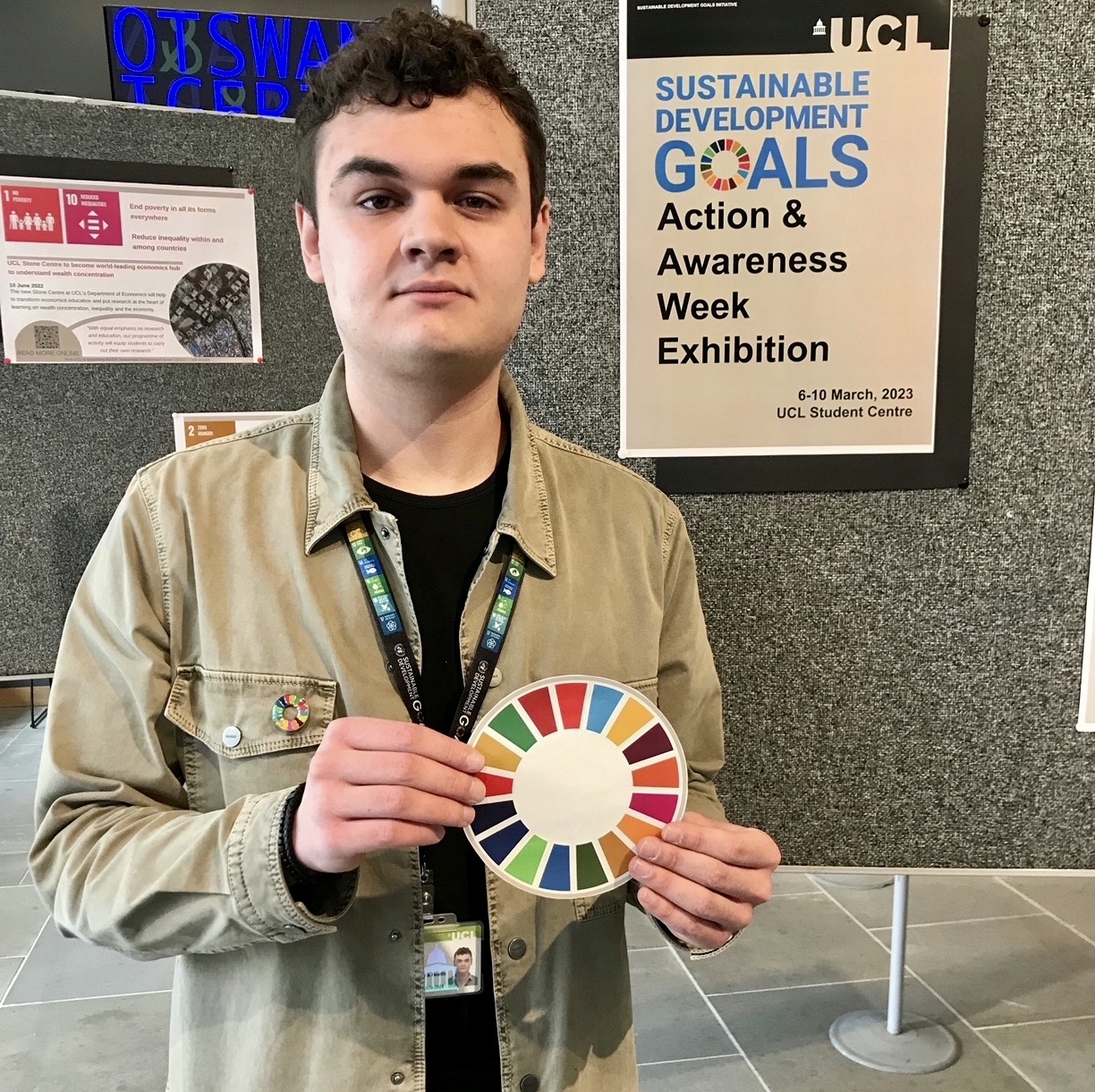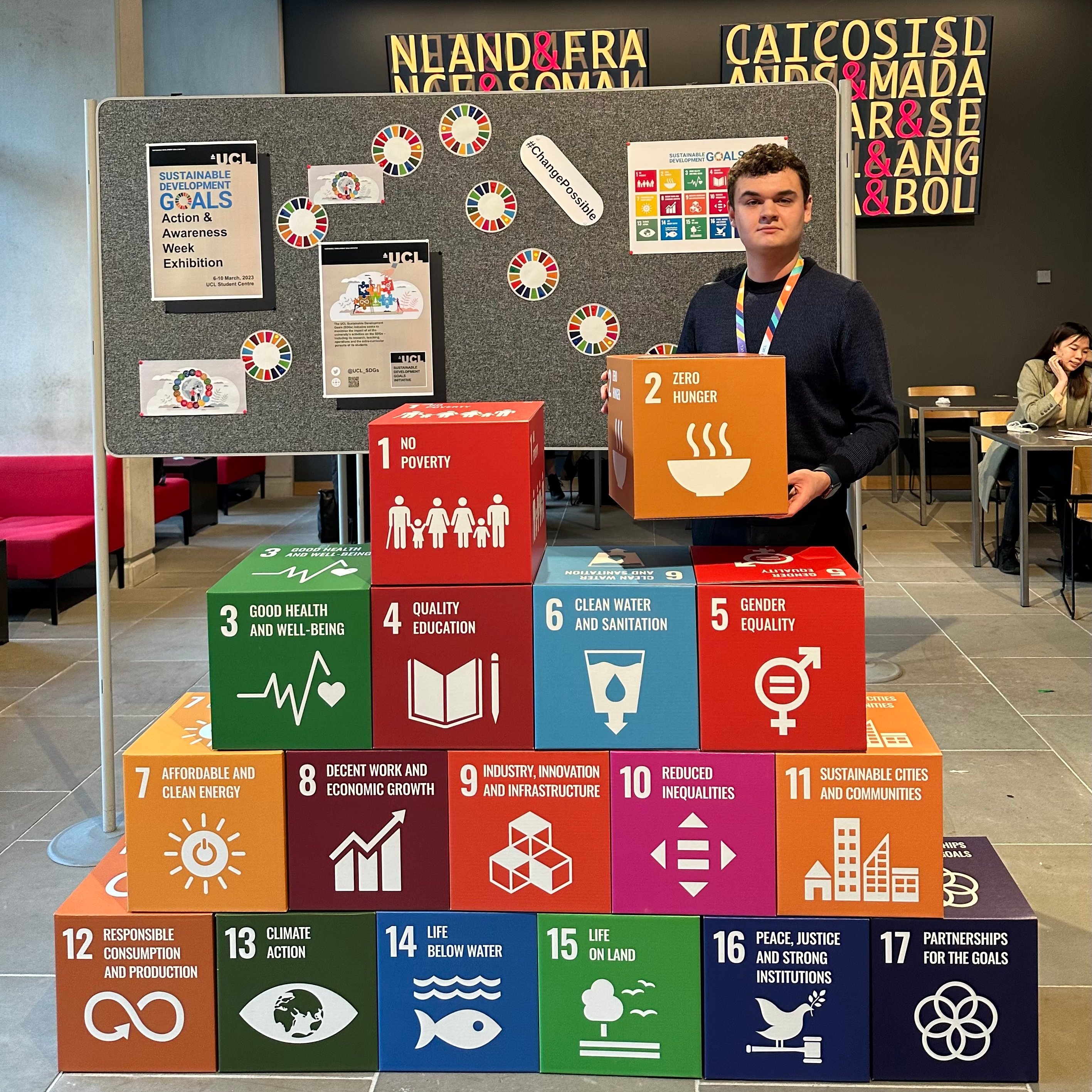Aleksandr Ignatev, a first year BSc Population Health Sciences student, is a Sustainability Community Ambassador who has been working hard to encourage the UCL community to be more sustainable!
I have been seriously involved in sustainability work since high school, where I founded the Green Committee. My motivation for getting involved with sustainability work at UCL was sparked by my background experience and a strong desire to make a positive impact on the environment and society.
The 2023 UN Sustainable Development Goals (SDG) Action & Awareness Week, coordinated by the University Global Coalition, is an initiative aimed at promoting and raising awareness about the United Nations' 17 SDGs. These goals, adopted in 2015, provide a blueprint for achieving a better, more sustainable future for all by addressing global challenges such as poverty, inequality, climate change, environmental degradation, and social injustice. By fostering a sense of global citizenship and responsibility, the week encourages everyone to play an active role in creating a future that leaves no one behind. During this academic year, I actively spread awareness of the SDGs' importance with other ambassadors. I encouraged different clubs/societies to relate their events as much as possible with the SDGs, cultivating a culture of responsibility and environmental stewardship within the university community.

The three ambassadors, we collaborated with Joanna Socha, the Union’s Strategic Projects Coordinator responsible for sustainability, and Simon Knowles, UCL’s Head of Coordination (Sustainable Development Goals), to create an engaging and informative exhibition at the Student Centre showcasing a variety of UCL initiatives aimed at addressing the 17 SDGs. These initiatives encompass research, teaching, student volunteering projects, societies, and the university’s own operations. By highlighting the diverse ways in which UCL contributes to the global sustainability agenda, the exhibition aimed to inspire students and staff to take action and become involved in these initiatives, furthering the university’s impact on the SDGs.
I believe that exhibition was very successful as we received a lot of positive feedback from students, particularly appreciating the photogenic appearance of the SDGs cubes. They definitely attracted everyone’s attention!

I am definitely planning to continue my involvement in sustainability work at UCL and maybe, further afield. My experiences in this role have been incredibly rewarding, and I am passionate about making a positive impact on the environment and society. One of the most important skills I've developed is collaboration and teamwork, as sustainability initiatives often require working closely with diverse stakeholders, including students, faculty, and administration. Another key skill I've honed is problem-solving and critical thinking, which has allowed me to approach complex environmental and social challenges with innovative and creative solutions.
I plan to reapply for this position and aim to take my sustainability efforts to new heights. My vision includes engaging other universities in London and around the world to collaborate on collaborative projects and initiatives. By working together, we can exchange ideas, share best practices, and amplify our collective impact on global sustainability. I believe that fostering a strong network of universities committed to sustainable development will not only strengthen our individual efforts but also inspire future generations to take action and contribute to a more sustainable world.
One simple thing that more students could do to be more sustainable is to adopt the practice of the three Rs (Reduce, Reuse, Recycle) in their daily routines. This could involve using reusable water bottles, carrying their own reusable bags for shopping, and choosing digital resources over printed materials when possible. By embracing these habits, students can significantly reduce waste, conserve resources, and contribute to a more sustainable environment. In addition, they could also spread awareness about the importance of sustainability among their peers, fostering a collective effort towards a greener future.